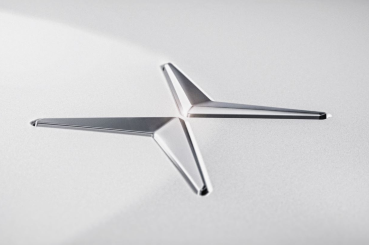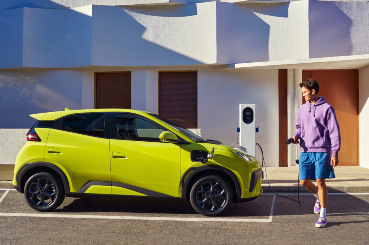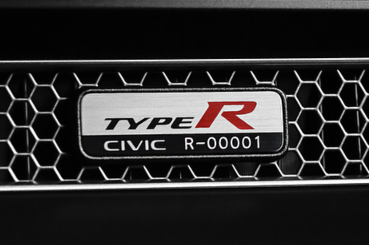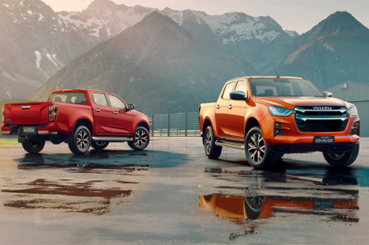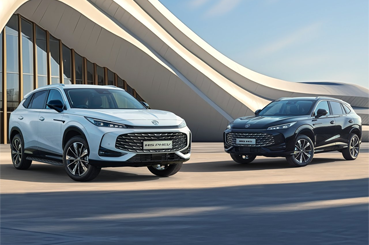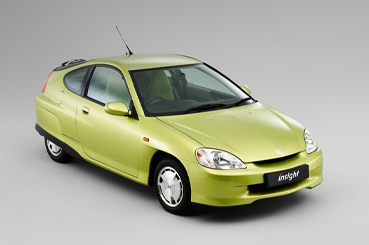Volvo Cars has built a reputation for safety and consistently investigates ways to make driving safer for all road users.
They extensively study real-world crash data to understand what happened and how similar incidents can be prevented.
Through Safe Space Technology and continuous testing, Volvo ensures its safety systems are refined and improved with every new development.
Volvo Cars safety ratings frequently top Euro NCAP testing tables, so it will come as no surprise that all current production models have gained a five-star rating.
We take a look back at how Volvo Cars safety innovations have impacted motoring over the years.
Volvo Cars Safety Features
Three-Point Seatbelt
The seatbelt we know today was invented by Volvo Cars engineer Nils Bohlin in 1959. Hired the year before as Volvo’s first chief safety engineer, Bohlin developed the three-point design that secured both the upper and lower body in one simple motion. His solution was practical, comfortable, and easy to use, which meant people were more likely to wear it.
Volvo believed so strongly in the life-saving potential of this design that they waived the patent rights, allowing other car manufacturers to adopt it freely. Within a few years, the three-point seatbelt had spread throughout the industry and was being fitted as standard in many vehicles.
The innovation first appeared in the Volvo PV544 in 1959 and by 1963 was installed across the full Volvo range. In the UK, seatbelts did not become legally compulsory until decades later, proving just how far ahead Volvo was in prioritising occupant protection. The design remains almost unchanged more than sixty years later and is estimated to have saved over a million lives worldwide. For Volvo, it laid the foundation for its reputation as a leader in safety innovation.
Multi-Adaptive Safety Belt
Building on that legacy, Volvo Cars is now introducing the world’s first multi-adaptive safety belt, which will make its debut in the fully electric Volvo EX60 in 2026. This new technology uses real-time data from interior and exterior sensors to adjust restraint forces according to the occupant and crash scenario.
The system takes into account factors such as height, weight, body shape, and seating position, as well as the severity of a collision. In a high-impact crash, a larger occupant might experience a higher belt load to reduce head injury risk, while a smaller occupant in a mild crash could receive a lower belt load to prevent rib injuries.
Unlike traditional load limiters that offer only a few fixed settings, the multi-adaptive safety belt provides a wide range of variations, creating a personalised level of protection for each individual. This means every passenger is supported in the safest possible way, regardless of their size or seating position.
Another major step forward is the ability to update the belt’s software over-the-air. This ensures the system will continue to evolve, benefitting from new data and research long after the vehicle leaves the factory. Just like the three-point seatbelt did in 1959, this breakthrough is set to redefine standards for safety in the years ahead.
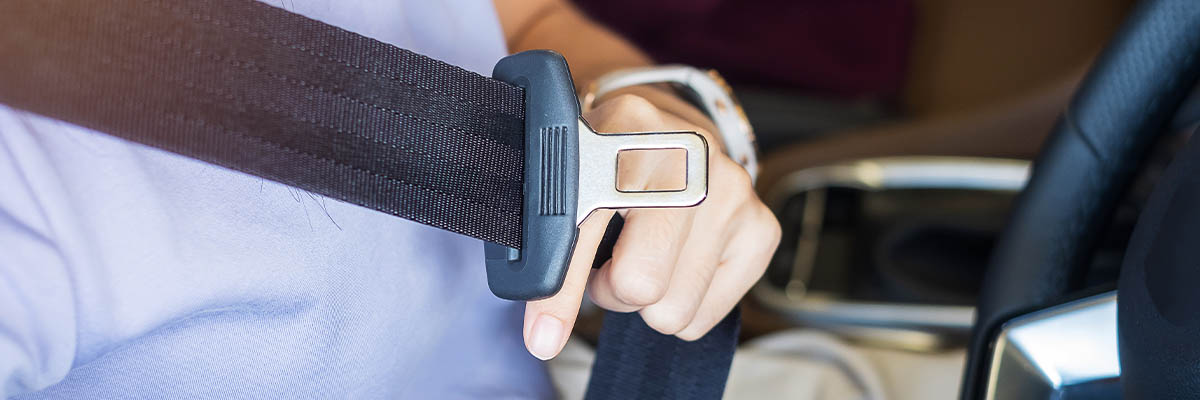
Lambda Sond
Emissions are not just an environmental issue; they are a safety concern for public health. Harmful exhaust gases reduce air quality, contribute to respiratory illnesses and pose long-term risks for communities. Governments are encouraging a shift from diesel cars to safer, cleaner alternatives such as electric and hybrid vehicles.
Volvo Cars recognised this challenge decades ago. In the 1970s, environmental expert Stephen Wallman developed the Lambda Sond, a small device that, when paired with a three-way catalytic converter, cut 90% of harmful exhaust gases. By monitoring oxygen levels in exhaust fumes and sending the data to the Engine Control Unit (ECU), it ensured the cleanest and most efficient combustion under all driving conditions. Introduced in the Volvo 244, it quickly became an industry standard, much like the three-point seatbelt.
Today, Volvo Cars continues to prioritise safety and clean air through the switch to electric vehicles. The company is investing heavily in electrification, reducing emissions and helping make the air safer for everyone, not just those inside the car.

Side Impact Protection System (SIPS)
SIPS is a vital development, as the sides of a car are its weakest point. Side impacts are less common than front or rear crashes, but they often result in greater injury.
As a result, SIPS was introduced in 1991 and has become standard on every Volvo vehicle produced since. The idea behind SIPS was to reinforce the side of the vehicle to increase protection in the event of a side-impact crash. Much like crumple zones at the front and rear of a car are designed to deform in a controlled way to absorb energy, SIPS channels the forces of a side collision through reinforced structures so that the impact is spread more evenly across the body of the vehicle.
In Volvo cars, SIPS includes a reinforced lower sill, a robust b-pillar and energy-absorbing honeycomb materials inside the doors. This helps to distribute the energy in a side collision across the whole side of the car rather than focusing it on just the b-pillar. The driver and front passenger seats are mounted on transverse steel rails which can absorb more energy in the event of a crash. Meanwhile, diagonal struts of high-strength steel offer protection if the car is hit by a larger vehicle.
The Volvo SIPS system was followed up in 1994 with Volvo’s first side-impact airbags to provide more all-round protection for the driver and any passengers.
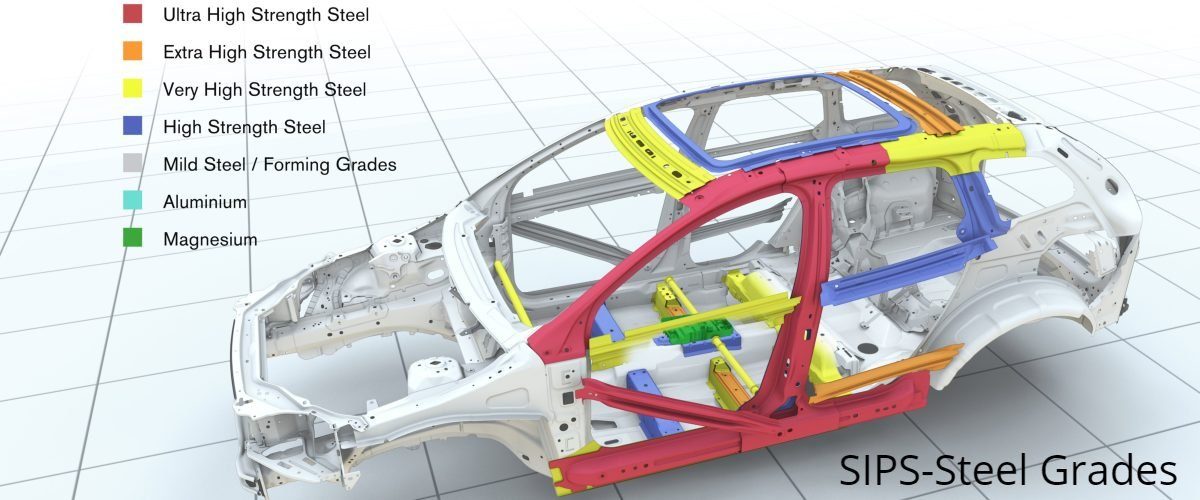
Rear-Facing Child Seat
Volvo Cars has always been keen to ensure that everyone on board is kept safe, which is why way back in the sixties they were one of the manufacturers at the fore of child seat development. Taking inspiration from space rocket seats which laid astronauts on their back to reduce the chance of injury, the marque has advocated rear-facing travel for babies and young children since it started developing child seats.
The first step Volvo Cars took to improve child safety in cars was a special accessory, released for the Volvo Amazon in 1967, which could transform the front passenger seat into a rear-facing child seat. This was replaced in 1972 by a proper rear-facing child seat produced alongside Professor Bertil Aldman, a former Doctor, who understood the importance of reducing the impact to a child’s head and neck. Innovation in child seats has continued, with Volvo Cars developing a full range of their own child seats designed for use from birth right up until 12 years of age.
Sweden has been quick to accept the safety benefits of keeping children rear-facing for longer, with the majority of Swedish children staying in rear-facing child-seats until they are six. However, in the UK, the idea of keeping a child rear-facing is still relatively new. Legislation introduced in 2018 stated babies must be kept rear-facing until they are 15-months of age. However, guidelines recommend maintaining children in a rear-facing position until at least four.
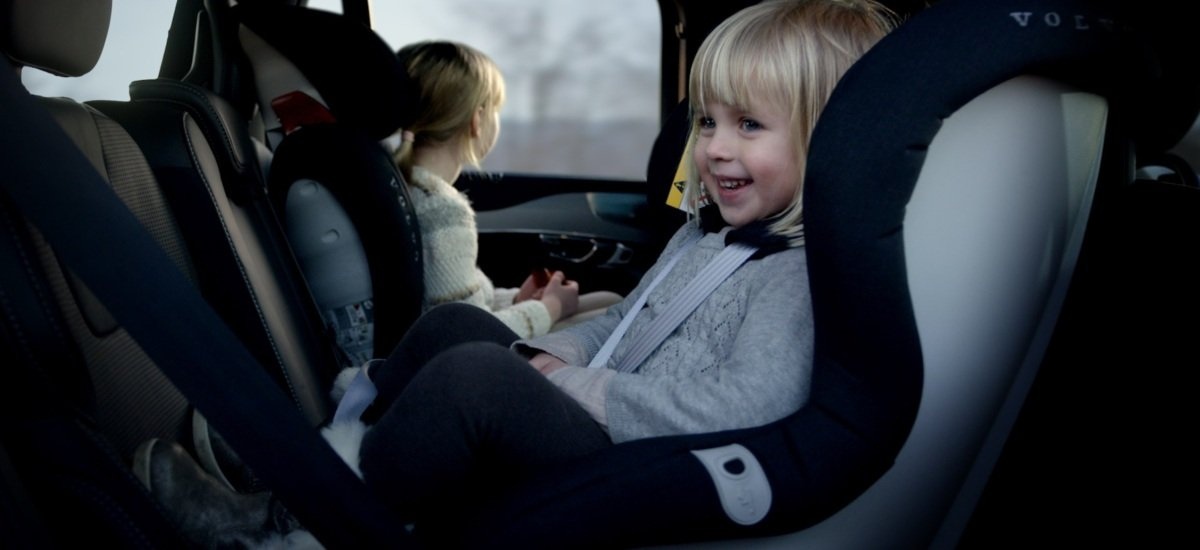
Volvo Cars Safety – Driver Assistance Systems
Volvo Cars is also leading the way when it comes to advanced driver assistance systems which are designed to prevent a collision occurring in the first place.
Blind Spot Information System (BLIS)
BLIS utilises a range of cameras and radars to watch for vehicles alongside and offset to the rear of the car, i.e. the car’s blind spot. When a car enters the blind spot, a warning lamp comes on in the door mirror giving the driver extra time to react appropriately.
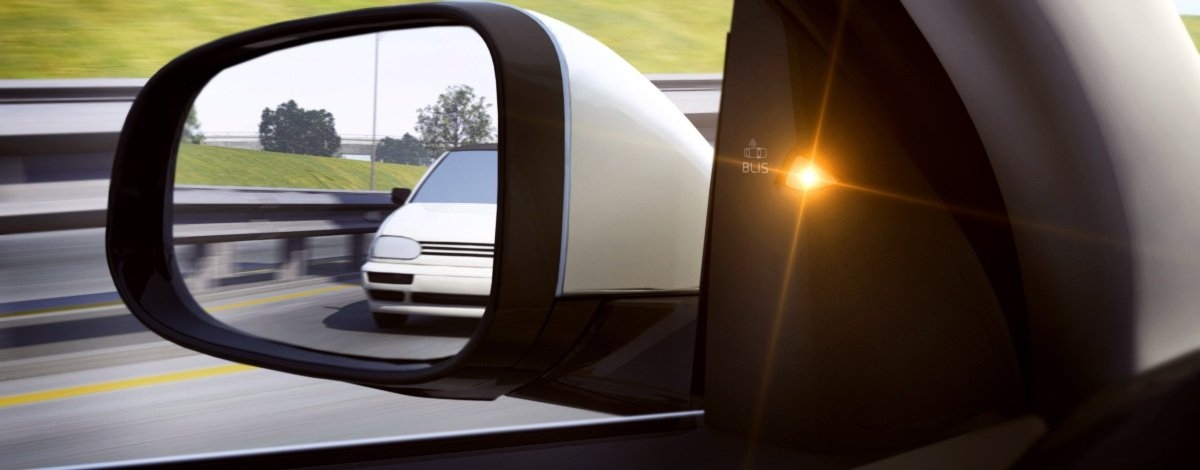
City Safety
City safety was developed as research found that 75% of reported collisions take place at speeds of just up to 18mph. Furthermore, in 50% of rear-end collisions, the driver behind hadn’t braked at all. To prevent this, Volvo Cars has developed a system in which the car can brake for you in emergency situations. Lasers constantly monitor whether a collision with a car in front is likely to occur and if the driver doesn’t react in time, the car will brake automatically.
Pedestrian Detection with Full Auto Brake
City Safety was further developed to create a system that would also help to protect pedestrians. Pedestrian Detection with full auto brake utilises advanced radar and cameras capable of spotting if someone steps out in front of the car and if a collision is likely can apply the brakes automatically. It’s a pretty huge step forward in terms of safety as figures from 2019 suggest that one in five of all EU traffic fatalities are pedestrians.
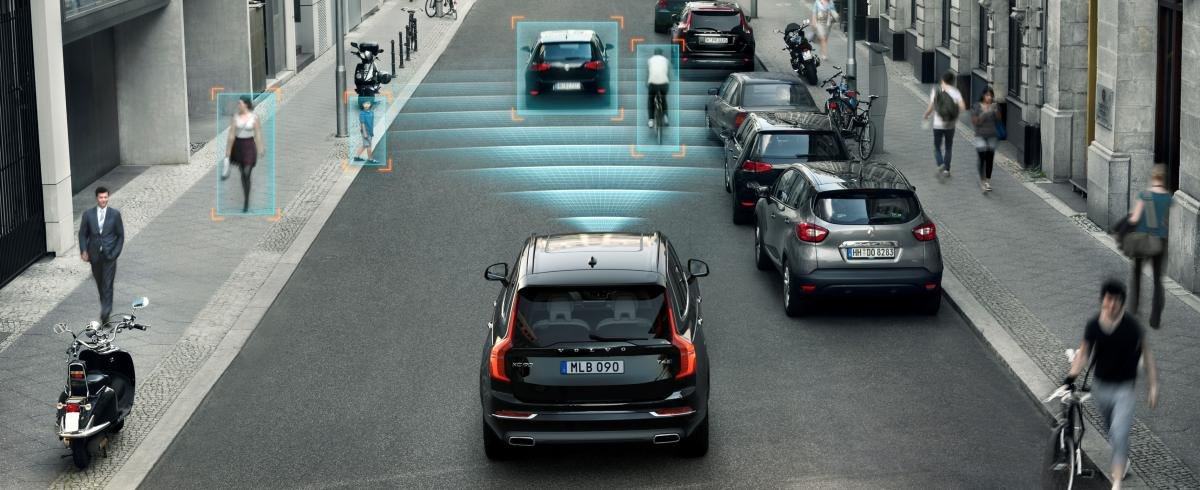
Looking to the Future
Volvo Cars is continually looking to innovate, and a key area of innovation has been and will always be car safety. The Volvo XC90 has an exceptional safety record in the UK, with no recorded fatalities or serious injuries of the driver or passengers since records began in 2004, highlighting Volvo’s long-standing commitment to protecting those on board.
The Volvo EX30 is another example of Volvo safety in action. This fully electric compact SUV may be small in size, but it is packed with all the remarkable qualities associated with the renowned Volvo brand. It also reflects Volvo’s commitment to sustainability with the smallest CO2 footprint of any Volvo ever produced.
Looking further ahead, the fully electric Volvo EX60 will debut the world’s first multi-adaptive safety belt in 2026. This system represents the next major leap in occupant protection, adapting restraint forces to individual passengers and crash conditions in real time. Alongside Volvo’s growing use of data, advanced driver assistance, and over-the-air updates, it signals a new era where vehicles can continuously improve safety throughout their lifetime.
From the invention of the three-point seatbelt to today’s cutting-edge technology, Volvo’s mission remains unchanged: to make every journey safer for everyone on the road.
